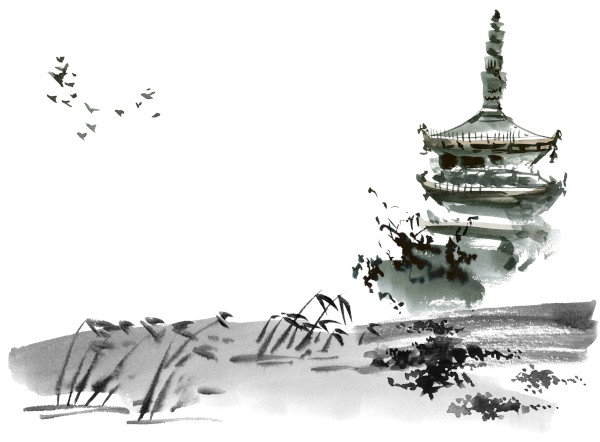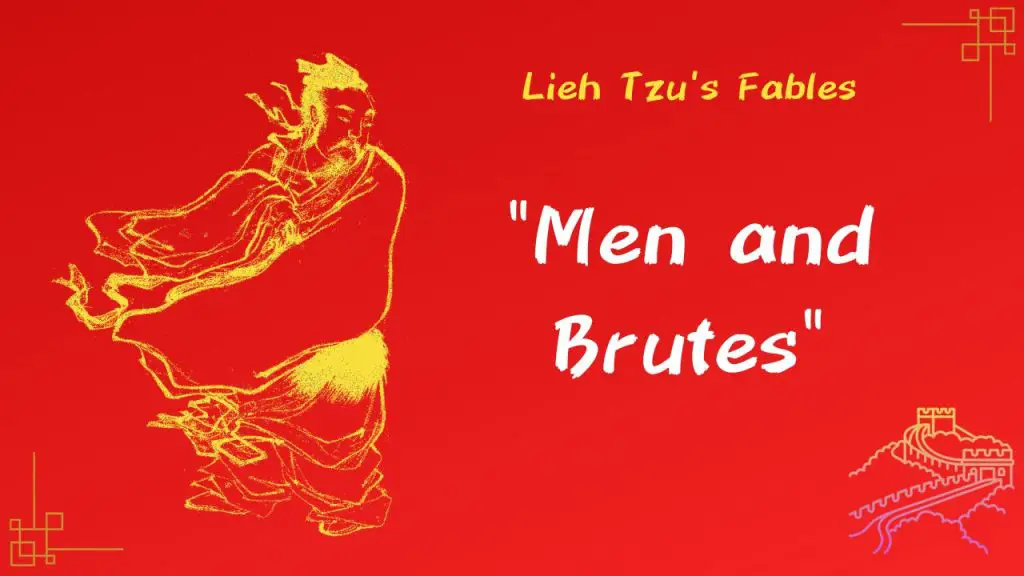In the annals of ancient wisdom, the harmony of music and the interconnectedness of all living beings have always been subjects of fascination. This story, set during Emperor Yao’s reign, takes us on an introspective trip into the surprising connections that bind the hearts of mankind and the world’s wild creatures.
As we investigate this topic, we discover the blurred lines between people and animals, as well as echoes of empathy that transcend species. This is another fable from philosopher Lieh Tzu, and comes from Frederic Henry Balfour’s book “Leaves From My Chinese Scrapbook”. I will put a link at the end of this article.
The fable of “Men and Brutes”
In the days of Emperor Yao, when the Director-General of State Music played on the musical stones, all the animals were drawn to the sound and came to dance to it. At the end, when the pandean pipes blended harmoniously, phoenixes drew near and listened reverently. Music was thus made a means of influencing animals and birds.
So, what makes the hearts of the wild creation different from human hearts? The only things that separate them are their voices, how they seem on the outside, and the fact that they are unfamiliar with the rules of social interaction.
Now that the Sage has a complete understanding of everything, he is able to compel their loyalty and therefore utilize them. There is an element of animal intellect that is, by nature, the same as human intelligence. For example, the instinct for self-preservation is a trait shared by all animals, and it was not developed by humans.
They live in flocks and travel with other members of their species. The young remain in their lairs while the fully grown ones go outside. They go to watering in company and eat when the gathering is called. Males and females pair together, and mothers and their young love one another. They avoid the open and unsheltered landscape and seek refuge in precarious places that are dangerous to humans.

In antiquity, wild animals coexisted with men and strolled beside them without fear. In time, they started to be afraid of men, which caused them to separate and lead to disorder. In later periods, they hid themselves, waiting in ambush and skulking far away to avoid harm.
Some men in one state could tell the difference between the languages of different kinds of animals, but this was a rare skill that only a few men had. However, in high antiquity, the men of supernatural wisdom had a complete understanding of all the external and internal characteristics of the lower animals, as well as a full comprehension of their differentiations and the sounds they made; as a result, when they called them together, they gathered, and when they were taught, they received in what was instructed exactly like humans do today.
All of this leads to the conclusion that the mental abilities of all things with blood and breath are fairly similar in all cases.
Do you enjoy Chinese fables? Click here for more – Opens in new tab.
End Words
Through this fable, the philosopher Lieh Tzu conveys a powerful message about the basic oneness of all living creatures and the unifying power of music. It implies that, despite apparent differences in appearance and communication, the hearts of people and animals have common features, such as the need for self-preservation and friendship relationships.
The narrative stresses the Sage’s knowledge, which allows them to comprehend and control the natural world much as they do human society.
Related reading: Finding Personal Growth Lessons In Ancient Chinese Tales – Opens in new tab
You can click and download Henry Balfour’s book “Leaves From My Chinese Scrapbook” (1887) or visit our free Chinese culture library to find it among many more books.





